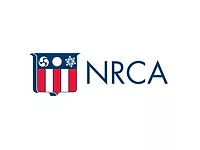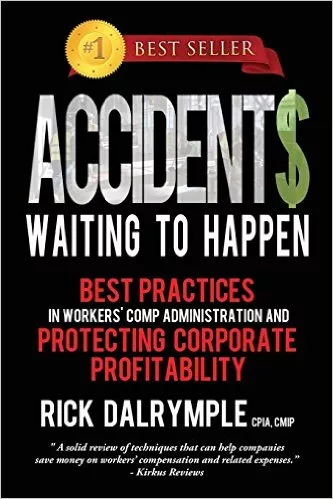NRCA’s Second COVID-19 Telephone Town Hall Reveals Best Practices, State of Industry
Roofing Contractors Share Tips on PPP Applications, Working as an Essential Business

In these unparalleled times that is the COVID-19 crisis, roofing contractors have dealt with everything from how to keep employees safe to contending with authorities that their work is essential.
To gain a better understanding of what contractors are going through, the National Roofing Contractors Association (NRCA) invited a panel of three roofing contractors to speak about their experiences during its second COVID-19 Telephone Town Hall.
The panel consisted of Doug Duncan, president of Nations Roof, Villa Park, Ill.; Bryan Karel, vice president of operations for Garlock-French Roofing Corp., Minneapolis, Minn.; and Kyle Thomas, vice president of Thomas Roofing, Mobile, Ala. Together with NRCA experts, the town hall provided helpful advice for contractors to follow when navigating these uncertain times.
A Drop in Sales
In a live survey conducted during the April 14 town hall, 81% of attendees said they have seen a reduction in sales as a result of the COVID-19 impact on the market. Another 19% said they have not. NRCA CEO Reid Ribble expressed his pleasant surprise at the survey’s outcome.
“It sounds like the industry is actually working the way it’s been designed to do, and roofing companies, as they’ve always done, are putting their customers first, and as essential business, they’re getting out there and getting the work done in what it sounds like in a safe fashion,” Ribble said.
None of the panelists said they had a job canceled as of the town hall, indicating that businesses and residents are still looking for roofing services.
“What we’ve seen is essentially no slowdown at all in new construction bidding, maybe a slight slowdown in the product negotiated reroofing business,” Thomas said.
When it came to supplies, Karel said the biggest issue his company has faced is the availability of personal protection equipment like face masks. Meanwhile, Duncan said overall there haven’t been many supply-related issues.
“One of my biggest concerns at the beginning of all this was it seemed like we had a trucking shortage, but I think they’ve been doing a good job, no real major delays in materials,” said Duncan.
Navigating the Payroll Protection Program Application
One way contractors are dealing with the loss of sales is applying for the Paycheck Protection Program (PPP). However, in an April 9 survey conducted by the NRCA, 38% of respondents said they have experienced problems with applying for assistance with the program.
When asking the panelists, Thomas said he applied but wasn’t funded, while Karel said his company applied but wasn’t aware of the status as of April 14. Duncan noted his company may be too large to qualify.
Ribble said the panel’s responses are on par with what the NRCA is hearing from around the country, and that most contractors who apply with local banks seem to have better luck.
“The thing we are hearing from members is that the smaller banks have been a bit more nimble,” Ribble said. “A lot of these local banks have been able to, for whatever reason, not get overwhelmed by it and been able to keep things moving forward and getting these loans done.”
Working as an Essential Business
In states where roofing is deemed to be an essential businesses, roofing contractors need to know how to operate within those confines. What most contractors have relayed is that they need validation from a client that roofing services are needed, which in turn contractors can provide if they are stopped and questioned by the authorities.
To that end, the NRCA provides a template on its COVID-19 resources page that roofing contractors can use to create letters stating they have the authorization to be out working during shelter-in-place orders.
Thomas said his company took an extra step and created employee badges that verify they are allowed to work. As of the town hall, he said there hadn’t been any cases of the authorities stopping his workers to or from a jobsite.
These letters may be a requirement for a while. Ribble said from everything he has heard from his contacts in Washington, D.C., his best guess is that shelter-in-place orders will last through May and possibly June.
“Quite frankly, it’s going to be how well we as a society behave ourselves, how well we do sanitation, how well we restrict travel,” Ribble said. “The more that the country lock arms virtually and stays away from each other, we’re likely to get past this a bit sooner.”
Safe Sanitation Practices
Contractors around the country are implementing procedures and policies In order to keep employees safe and healthy during the crisis. Below are some of the practices that the panel of contractors said they’ve effected:
- Office employees working from home when possible
- Not allowing people to congregate in break rooms or warehouses
- Stagger employee start times in the morning
- Providing sanitizing products (like mixing bleach with water in a spray bottle) for field crews to clean up tools, vehicles and equipment
- Taking the temperatures of workers before and after jobs
- Having crew members drive directly to jobsites
- Two daily check-ins using Zoom
- Giving masks to employees to wear, especially when riding in vehicles together
Of the three contractor panelists, only Karel had an employee that was clinically diagnosed as having COVID-19, which he said forced his business to shut down for two weeks. The employee has since been cleared to return to work, but it gave Karel some clarity.
“Because of everything, we split our operations into two different locations so that way, because of what we had happen with one of our employees going down and shutting down the company, we needed to split things up as much as we could,” Karel said.
Looking for a reprint of this article?
From high-res PDFs to custom plaques, order your copy today!







